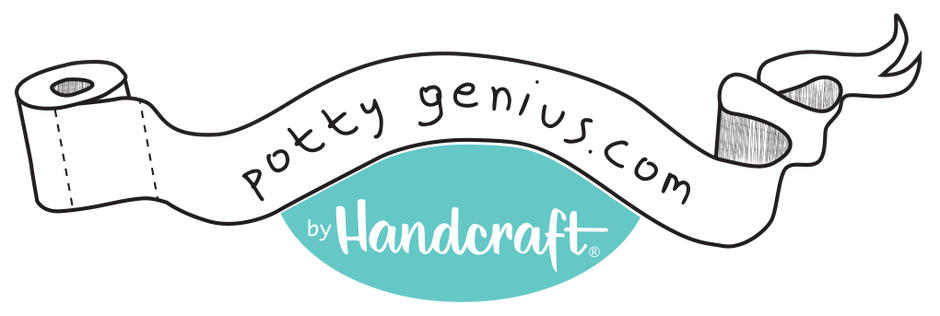Is your child ready for potty training? While the average age to start
potty training is 18-24 months, every child is different and will meet this milestone at his own pace. Starting too soon can create toilet resistance, fears, and tantrums, whereas starting too late increases the economic and
environmental costs of diapers and may make your child more resistant to change. So, when is your toddler ready for potty training? Here are eight signs of potty training readiness:
Sign of Potty Training Readiness 1: Understands Bathroom Lingo and Uses it
Your child has words and/or signs for urination and defecation. Whether it’s “pee,” “poo,” “potty,” or some other word or phrase, as long as your child can communicate the need to go or lets you know once he has gone, he may be ready to start potty training.
Sign of Potty Training Readiness 2: Has Some Bladder and Bowel Control
Toddlers typically start gaining bladder and bowel control around 18 months old. Some signs that they are
developing control include:
- Fewer wet diapers.
- Remaining dry during short naps or for two waking hours.
- Hiding to go or going to a certain spot to eliminate.
- Has at least somewhat predictable bowel movements.
Sign of Potty Training Readiness 3: Shows Interest When You Go to The Bathroom
If your child is showing interest when you go to the bathroom and wants to see what you’re doing or even try to imitate you, this is a good indicator that he may be ready for potty training. So, when he tries to follow you to the toilet, let him and use it as a teaching opportunity.
Sign of Potty Training Readiness 4: Can Undress Himself with Little to No Assistance
In order to potty train, your child should have the motor skills necessary to get his pants on and off with little to no assistance. If he still struggles with this, you may want to consider waiting a little longer to start training as he may have difficulty getting undressed and on the potty in time.
Sign of Potty Training Readiness 5: Expresses Desire for Independence
If your toddler shows a strong desire for independence and wants to do things himself, use this to your advantage. Signs that your child wants to take more control of himself and his environment are statements like “Let me do it” and “I’m a big girl/boy now” as well as wanting to dress himself, feed himself, make his own choices, and having temper tantrums or otherwise showing resistance when he doesn’t get his way.
Sign of Potty Training Readiness 6: Able to Follow Directions
Your child should be able to follow simple directions before you start potty training. If your child can’t understand and follow simple instructions without much extra direction, he may not be ready to potty train just yet.
Sign of Potty Training Readiness 7: Recognizes When He is Soiled and Doesn’t Like it
If your child is recognizing that he is wet and is able to verbally tell you or even take the dirty diaper off and give it to you, this is a great indication that he may be ready to start potty training. Use this to your advantage and consider changing him out of diapers and into
big boy or girl underwear so he’ll be more likely to notice the wetness.
Sign of Potty Training Readiness 8: Displays Signs of Emotional Readiness
Emotional readiness can be the most difficult indicator for parents to assess. Generally, a child is emotionally ready to start potty training when he is eager to please parents, expresses a desire for autonomy, wants to mimic behaviors (especially of older children), and doesn’t show signs of
potty training resistance. Children who resist potty training may have fears or anxieties that need to be resolved. Others may be going through unrelated emotional difficulties that can affect potty training ability. Parents are advised not to attempt to potty train when children are going through any other kind of transition such as starting daycare, parental divorce, moving to a new home, welcoming a new sibling, etc.
Additional Potty Training Resources:
- Potty Training Signs of Readiness
- 10 Signs Your Child is Ready to Start Potty Training

